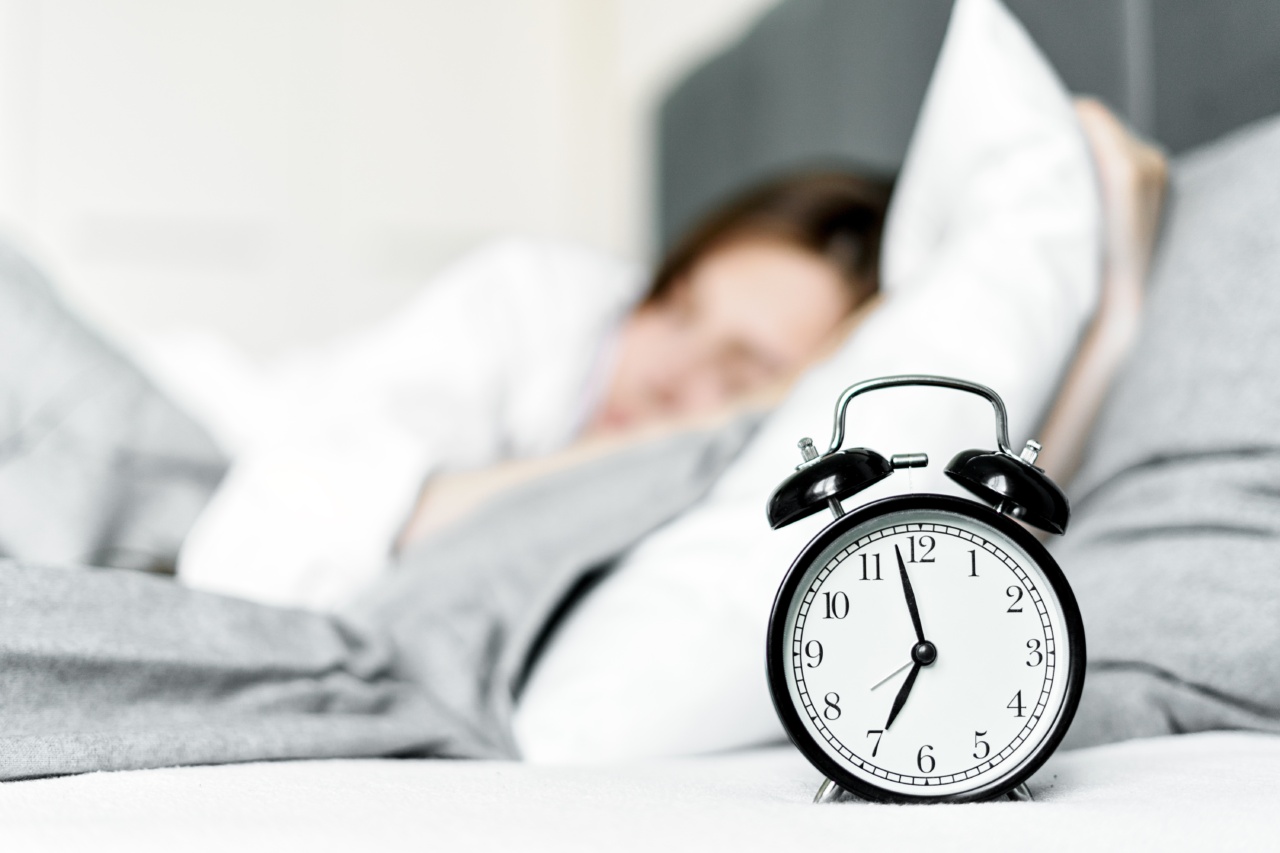While sleeping is an essential activity for maintaining good health, it’s also a time when the body is vulnerable to a number of illnesses that can strike at any time.
Some of these conditions can be relatively minor, while others can be more serious and require immediate medical attention. The following are some of the most common illnesses that can attack during sleeping hours:.
1. Insomnia
Insomnia is a sleep disorder that is characterized by difficulty falling asleep and/or staying asleep.
This condition can affect people of all ages and can be caused by a variety of factors, including stress, anxiety, depression, and certain medications. Insomnia can lead to fatigue, irritability, and difficulty concentrating, and can also increase the risk of accidents and injuries.
2. Sleep Apnea
Sleep apnea is a serious sleep disorder that is characterized by interruptions in breathing during sleep. This can be caused by the partial or complete collapse of the airway, which can lead to a lack of oxygen in the body.
Sleep apnea is often accompanied by loud snoring, and can increase the risk of high blood pressure, heart disease, and stroke if left untreated.
3. Restless Leg Syndrome
Restless leg syndrome is a condition that is characterized by an uncontrollable urge to move the legs during sleep. This can be accompanied by a tingling or crawling sensation, which can make it difficult to fall asleep or stay asleep.
Restless leg syndrome can be caused by a number of factors, including low levels of iron in the body and certain medications.
4. Narcolepsy
Narcolepsy is a neurological disorder that is characterized by sudden and uncontrollable episodes of sleep during the day.
This can be caused by a malfunction of the brain’s sleep/wake cycle, and can lead to a variety of symptoms, including excessive daytime sleepiness, hallucinations, and cataplexy (a sudden loss of muscle control).
5. Parasomnias
Parasomnias are a group of sleep disorders that are characterized by abnormal movements or behaviors during sleep.
These can include sleepwalking, night terrors, and REM sleep behavior disorder (RBD), which is characterized by violent movements during REM sleep. Parasomnias can be caused by a variety of factors, including stress, anxiety, and certain medications.
6. Bruxism
Bruxism is a condition that is characterized by the grinding or clenching of teeth during sleep. This can lead to wear and tear on the teeth, as well as headaches, jaw pain, and problems with the temporomandibular joint (TMJ).
Bruxism can be caused by stress, anxiety, and certain medications.
7. Nocturnal Enuresis
Nocturnal enuresis, or bedwetting, is a condition that is characterized by the involuntary release of urine during sleep. This can be caused by a number of factors, including bladder problems, hormonal imbalances, and stress or anxiety.
Nocturnal enuresis is most common in children, but can also affect adults.
8. Sleepwalking
Sleepwalking, or somnambulism, is a condition that is characterized by walking or performing other activities while asleep. This can be caused by a variety of factors, including stress, anxiety, and certain medications.
Sleepwalking can be dangerous, as a sleepwalker can become disoriented and fall or injure themselves.
9. Nightmares
Nightmares are vivid and disturbing dreams that can occur during REM sleep. These can be caused by a variety of factors, including stress, anxiety, and trauma.
Nightmares can cause a person to wake up feeling scared or anxious, and can lead to difficulty falling back asleep.
10. Sleep Paralysis
Sleep paralysis is a condition that is characterized by the inability to move or speak during sleep or upon waking. This can be caused by a disruption in the brain’s sleep/wake cycle, and can be accompanied by vivid hallucinations.
Sleep paralysis can be very frightening, and can lead to anxiety and panic attacks.
Conclusion
Sleep is an important part of maintaining good health, but it’s also a time when the body is vulnerable to a number of illnesses and disorders.
By being aware of these conditions, you can take steps to prevent them and seek treatment if necessary, ensuring that you get a good night’s sleep and wake up feeling rested and refreshed.






























